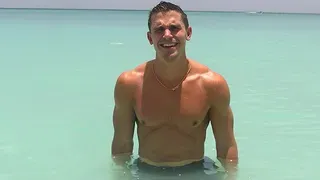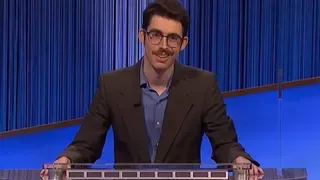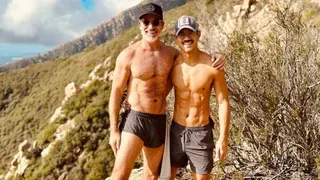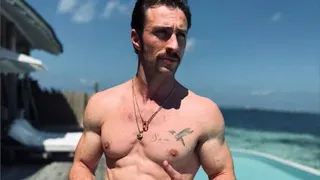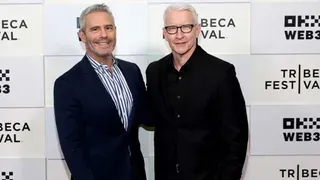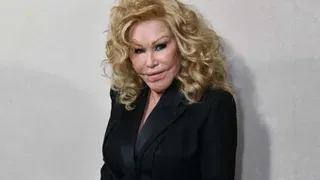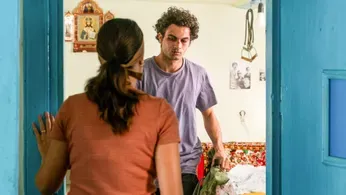
December 6, 2024
EDGE Interview: Director Emanuel Parvu Talks About His Queer Palm-Winning Film 'Three Kilometres to the End of the World'
C.J. Prince READ TIME: 12 MIN.
In a picturesque and isolated village along the Danube Delta, 17-year-old Adi (Ciprian Chiujdea) lives a tranquil life with his father (Bogdan Dumitrache) and mother (Laura Vasiliu). The future seems bright for Adi until one night when, after two teenage boys see him being intimate with a boy visiting from out of town, they beat Adi to a pulp. Adi's parents, unaware of their son's orientation, immediately report the attack to the police, and the resulting investigation fractures the family's relationship.
The news of Adi's gay relationship also cracks open the town's dark, hateful foundations in "Three Kilometres to the End of the World," director/co-writer Emanuel Parvu's latest feature. Parvu doesn't keep things limited to Adi, though. His interests have less to do with the hate crime itself and more to do with the aftermath, where the town's authority figures frantically come together to sweep the crime under the rug in order to maintain the imbalance that benefits all of them. The perpetrators' father, an influential man who Adi's father happens to owe money to, works with the police to try and get the report of the crime tossed out, while Adi's parents get the local priest to restrain their son so he can conduct a prayer ritual to "cure" his "disease."
Parvu's approach, where the suppression of Adi and the crime takes on a procedural quality at times, forces viewers to reckon with the injustice on display. The camera observes through long takes, carefully blocked and choreographed to give an elegant quality that clashes against the horrors unfolding. There's a harsh truth at the center of the film centered around a seemingly idyllic locale, one where people's kindness and sympathy can vanish in an instant when self-preservation kicks in to uphold their corrupt, traditionalist values.
"Three Kilometres to the End of the World" premiered in May 2024 at the Cannes Film Festival where it competed for the Palme d'Or in Official Competition. It ended up taking home the Queer Palm, an award for the best LGBTQ+-related film at the festival. The film has also been selected by Romania as its submission to the Academy Awards for Best International Feature (the film is still seeking a distributor in America for a general release).
EDGE talks with Emanuel Parvu to discuss his film, why he refused to tell the story from Adi's perspective, the backlash he received from right wingers in Romania, and more.
EDGE: Did you have any sort of personal background or connection to your film's setting?
Emanuel Parvu: The village that we shot the film in is very connected to me and Miruna [Berescu], the film's producer and co-writer. She's the director of the International Anonimul Film Festival, which happens there. It's the film festival that they're talking about in the film. All my summers have been spent there since 1986, so I'm usually attracted to that place. It's the only place that I know in our country that has two worlds in the same space [that are] so different. It's like having the North and South Poles together at the same time. It's the city guys that are coming there, and they have to live together with the locals for three months during the summer. It's because [the village] is very far away. It's not reachable by car, it's only reachable by boat. It's a very deserted area, and during summertime it's the most hipsterish, coolest place. It's the place you want to be during summertime, at the seashore.
EDGE: Because you have such a familiarity with that place, did you always know you were going to set it in this location?
Emanuel Parvu: We knew that since we thought about it for the first time in 2014. We thought about it 10 years ago, [when] there was news all over Romania about a rape case. A girl got raped by seven men, and the whole community turned against the victim. We were shocked about the community reaction, and we started to think about making a film. We made two other films, and then we got back to the idea about four years ago when the pandemic started.
EDGE: Where did that incident happen?
Emanuel Parvu: In a village in a different area. But we needed a place from which our lead character cannot escape. If it's a normal village on land, everybody can walk away.
EDGE: The incident in your film is different from the one that you took inspiration from. You could have approached this subject matter through other subjects like immigration, racism, or misogyny. Why did you choose to explore these themes through homophobia?
Emanuel Parvu: When you're dealing with immigration or a different skin color, that's something that I can observe from far away. This is not something that you can spot from a distance. We needed somebody to be loved in the first place, to be a part of the community. We needed a change from within, and when that change [happens], the whole community changes its point of view toward that character.
EDGE: I found you were very deliberate in terms of the perspectives that you chose to tell this story. This isn't really seen through Adi's eyes. This is mainly from the perspective of Adi's parents.
Emanuel Parvu: I wouldn't dare to tell a story from Adi's perspective because I'm not part of the [LGBTQ+] community. In my opinion, it would be like an imposter. It would be a perspective from a position that I don't know. It's like having a film about the Holocaust and not being a Jew. It's very different to have a film from the victim's position while not being a victim, and I'm not a victim. I'm a part of the society of the aggressor. There's nothing wrong with minorities. Skin color, religion, race, sexual orientation, doesn't matter.
What I want to change, and what I want to talk about, is my part that I know. I know all the bad things from here, I know the corruption, and I want change. I don't want to change things over there [on the good side]. I want to change things over here. I'm old enough to know that a film cannot change the world, but I think a film can change things. It can draw attention and raise questions about yourself. I'm trying to make mirrors. I'm not in the position to lecture anybody or to preach, but I know I can try to put a mirror in front of yourself. Look at yourself. Do you like yourself? Okay, look again, [then] question yourself. Am I a good parent? Am I a good human being? Am I a good person for the community? I want people to have an introspection about themselves.

